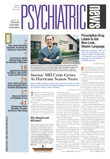The majority of the 50-70 million Americans with one or more of 81 discrete disorders of sleep remain undiagnosed and untreated, according to a report from the Institute of Medicine (IOM), an arm of the National Academies in Washington, D.C.
The United States has too few clinicians knowledgeable about sleep disorders and too few scientists engaged in basic sleep research, the IOM's Committee on Sleep Medicine and Research concluded after a two-year review.
Sleep disorders raise an individual's risk of depression, hypertension, diabetes, obesity, heart attack, and stroke, according to the committee's 500-page report, “Sleep Disorders and Sleep Deprivation: An Unmet Public Health Problem,” released in April.
Sleep loss impairs school and work performance and has contributed to major industrial catastrophes such as the 1986 explosion of the space shuttle Challenger. About 20 percent of serious car-crash injuries are attributed to driver sleepiness, independent of alcohol effects.
In the past 25 years, American adults have decreased their average nightly sleep by one to two hours, according to the IOM report. Nearly 1 in 3 adults aged 30 to 64 reports averaging six hours or less sleep a night.
The report identifies gaps in sleep research, treatment, and education of both health professionals and the public. It also offers a blueprint for improvement.
“Above all, the IOM report emphasizes the importance and advantages of considering sleep and sleep disorders from a multidisciplinary perspective,” IOM study panel member Charles Reynolds III, M.D., told Psychiatric News. Reynolds is a professor of geriatric psychiatry and the senior associate dean at the University of Pittsburgh School of Medicine.
“Patients with sleep disorders need to be assessed and treated by experts from many domains,” said Reynolds. “Like chronic pain, a sleep problem often is multiply determined. The understanding and management of a given patient need a team approach.”
The IOM report urges the National Institutes of Health (NIH) to develop a nationwide network to foster basic and clinical sleep research by creating about eight to 10 centers of excellence. It envisions these centers would function much like existing comprehensive cancer centers, acting at local, regional, and national levels to benefit scientists and the community at large.
“The report places an emphasis on such centers, rather than on traditional departments,” Reynolds explained, “because the needs of the field and those whom it seeks to serve demand that we move beyond traditional departmental `silos' to embrace a new type of infrastructure that encourages and rewards transdisciplinary research and practice.”
The sleep field “desperately needs” input from psychiatrists and other mental health specialists, said Lawrence Epstein, M.D., president of the American Academy of Sleep Medicine and regional medical director for Sleep HealthCenters in Boston.
Sleep disturbances figure prominently in many psychiatric disorders, Epstein noted. An estimated 30 million Americans, about 10 percent of adults, have chronic insomnia, the most commonly reported sleep problem. About 40 percent of these individuals have a psychiatric disorder, most often depression or anxiety.
In people with obstructive sleep apnea, breathing stops dozens, even hundreds, of times a night, causing daytime sleepiness, difficulty concentrating, irritability, and dulled interest in usual activities, mimicking depression and even dementia. About half of people with chronic schizophrenia have this disorder. The restless legs syndrome—a nearly irresistible urge to move the legs or walk around—may produce agitated behavior suggestive of attention-deficit/hyperactivity disorder.
Circadian-rhythm sleep disorders cause people to go to sleep or awaken at times much earlier or later than family and peers. These disorders interfere with traditional school and work schedules, disrupt social and family life, and depress mood. People with insomnia, narcolepsy, and other sleep disorders sometimes self-medicate with alcohol, stimulants, and other drugs of abuse, trying to foster sleep or wakefulness.
Sleep-deprived adolescents have more emotional and behavioral problems than peers who are better rested, the IOM committee reported (see
article below).
Mistaking a sleep disorder for a psychiatric disorder may delay appropriate treatment, according to the IOM report. One study of 77 patients diagnosed with narcolepsy at a sleep center found that only 11 percent of psychiatrists who had seen the patients in the previous year had recognized the problem. By comparison, neurologists had identified the narcolepsy in 55 percent of their patients, internists in about 23 percent, and general practitioners in 22 percent.
People with narcolepsy were much more likely to be diagnosed with mental disorders than were people without narcolepsy, according to Meir Kryger, M.D., a professor of medicine at the University of Manitoba, who directed this study. He and colleagues reported their findings in Sleep in February 2002.
“Psychiatrists—indeed all physicians— should ask every patient about sleep,” asserted Kryger, the chief editor of Principles and Practice of Sleep Medicine, the sleep field's primary text.
He suggests asking patients a few key questions: “Do you snore? Has anyone told you that you stopped breathing? Do you fall asleep at the wrong time or wrong place? What was your sleep like last night?”
The IOM committee included experts in pulmonology, cardiology, nursing, neurology, pediatrics, adolescent medicine, psychiatry, epidemiology, public health, otolaryngology, academic and medical administration, and health sciences research. In conducting its two-year review, the committee met five times and held two workshops. It also studied scientific literature and other materials supplied by federal, private, and nonprofit organizations.
The committee's work, which cost $810,000, was underwritten by the American Academy of Sleep Medicine, NIH, National Sleep Foundation, and Sleep Research Society.
The NIH sleep disorders research advisory board is scheduled to discuss the IOM report's recommendations at its next meeting, June 14, to be Webcast live at<www.videocast.nih.gov>.▪
